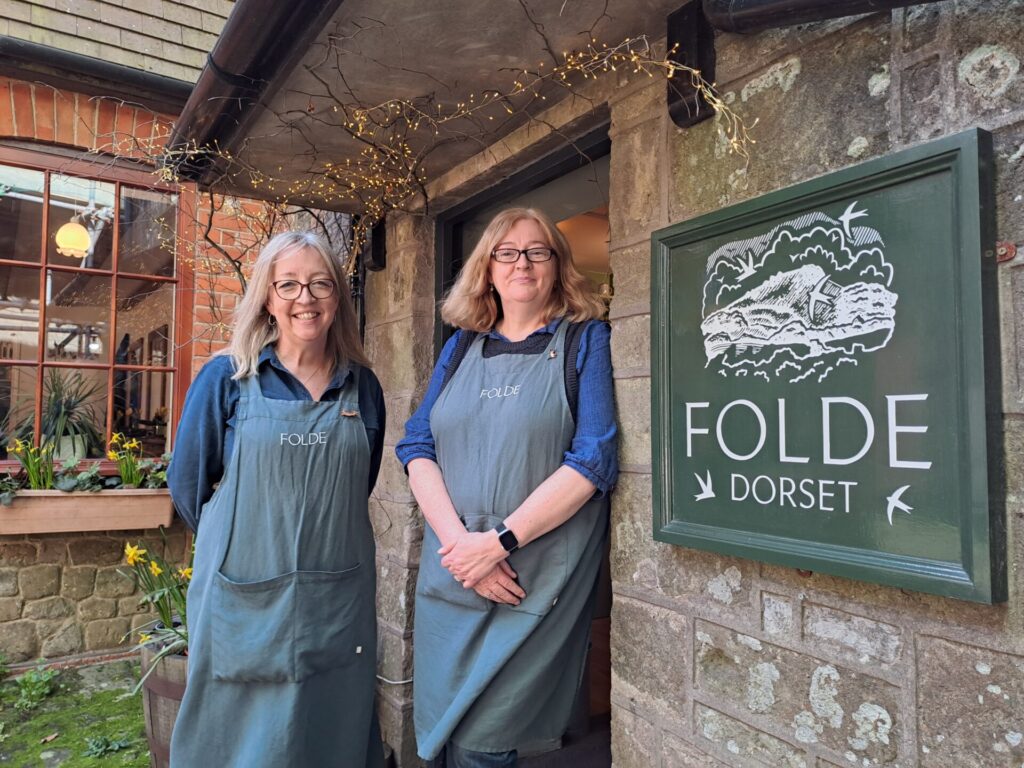The Easter weekend is synonymous with the return of leaves to the trees, the flowering of daffodils and the birth of new life on the farm. For Sturminster Newton farmer Stuart Ludwell, however, his Easter weekend left him devastated and enraged after a dog chased and killed one of his lambs.
Stuart keeps sheep in the fields next to Sturminster Newton Mill – a popular spot for local dog walkers with a public footpath following the river bank which skirts two sides of the field. Stuart received a phonecall from the Hinton St Mary Estate – from which he rents one of his fields – informing him of the incident. And for the farmer, enough was enough.
‘As soon as I was told that there had been a dog incident in the field I called my wife to say “make a sign”… I’d had enough. I found the lamb and took it, with the sign, to the edge of the field where the footpath is,’ Stuart told The BV.
A police investigation has begun in hopes of finding the owner of the dog that killed the two week-old lamb.
During the attack, a member of the public intervened and photographed the owner and their dog as they left the field and headed back toward Sturminster Newton Recreation Ground next to the field of sheep. The next day, Easter Sunday, the sign and the lamb created a furore on the Sturminster Newton News Facebook page. A passer-by had photographed and uploaded the warning left to dog walkers. Another day passed and the post was spreading further afield – at the time of writing it has been shared almost 1000 times, including by TV’s Gareth Wyn Jones, the Welsh farmer with more than 300,000 social media followers.
A problem all year
‘Yes, OK, I was in a fit of temper,’ says Stuart. ‘I’ve previously had sheep die from worrying in that field, as well as driven into the river and drowned. I’ve also had sheep killed at other locations.’ With the social media post beginning to spread, Stuart was ‘pleasantly surprised’ that a lot of people were supportive of his actions: ‘Going by what I saw on Facebook, I’m actually quite positive that the general public do get the message. It’s just that one or two people ruin it for everybody else. I think a lot of people are just frustrated that this happens.’
Despite having now lost six of his Lleyn cross Texel sheep to dogs, the Sturminster Newton farmer feels he has ‘been very lucky’. He says: ‘Other farmers are having much bigger problems, losing a hell of a lot more sheep than me to the exact same issue. It’s just ignorant people – and the classic “Oh, not my dog. My dog wouldn’t do that… my dog wouldn’t chase sheep”.
But they can’t possibly know?’
Dorset’s NFU chairman Wakely Cox explained to the BV that sheep worrying is not only an issue during lambing season: ‘Sheep worrying is always a problem, throughout the year. But it is worse now because the very young lambs are that bit smaller and easier to catch. The other thing, of course, is the ewe is much more protective of its lambs. So the dog goes to attack the lambs and the ewe comes to protect them, and then the dog attacks the sheep.’
The law currently states that “dogs must be under control when passing through fields with livestock”. Wakely believes that this is too ambiguous for some people: ‘For your dog to be under control, it has to be on a leash. It might respond to a whistle or something else, but a dog is not controlled if you can’t stop it when it’s racing across the field after livestock.’
No way to go
Figures released recently by NFU Mutual show that animals worth an estimated £2.4 million were severely injured or killed by dogs in 2023 – a 30 per cent increase on the previous year. The South West is the worst-hit region in the country, with casualties totalling £359,000.
‘One of the problems is that farmers don’t report the dog worrying incidents very much,’ said Wakely. ‘I think only 14 cases in Dorset were reported to the police last year – it is a tiny figure compared with the number of attacks that farmers know are actually happening. But so often you don’t see the dog. The farmer has gone and checked the sheep in the morning, at lunchtime or the evening – but the attack more than likely happens between visits, and the farmer isn’t actually there to see it going on.’
Another point of view
In spite of strong support on social media for Stuart’s actions, there were a few who strongly disagreed with leaving a dead lamb by a footpath as a warning for dog walkers.
One post said: ‘It would not have happened if the fencing was doing its job. It’s a horrible thing to do.’
The original Facebook group post was made by Sturminster resident Louise Murguia: ’It’s not nice for children and adults to see when they walk into the Mill field,’ she said.
Murguia told The BV that she had received considerable ‘backlash’ and ‘a lot of unpleasant comments’ from her post. She went on to add: ‘I am a proud vegan and I am anti-farmers because they exploit animals. Farmers abuse the lambs from day one. They put tight elastic bands around the boys’ scrotum and the girls’ tails. This must be pure pain for the first two weeks of their life before they drop off. So when you see lambs, just remember that they are in pain.
Why people think [that] farmers care so much is just ignorant. I just wish people weren’t so obsessed with eating meat full stop. Plant-based is so much better for the animals, for the environment and also for the ozone layer. But I feel I am in the minority and people are just blood-hungry.’
Stuart Ludwell says that other animal rights activists have commented: “you are going to kill the lamb anyway, so what’s the problem?”.
To them, he says: ‘An abattoir is a controlled environment, and it’s an instant death. That lamb would have run for its life until it gave up and the death still wouldn’t have been instant – it has just been mauled. You’ve seen the pictures, the dog’s teeth have gone through the eye, through the jaw and the top of the skull. That is just ripping that lamb up. It is not the way to go.’
Fair retribution
During the attack, a member of the public intervened and photographed the owners and their dog as they left the field and headed back to the adjoining recreation ground.
‘By sheer luck, the groundsman for Sturminster Rec has the whole incident on their CCTV footage, with the dog actually attacking the sheep, as well as the group of people leaving the field and going across the Rec.’
A police investigation has begun. Stuart hasn’t seen the footage himself but he is hopeful that the police will be able to identify the people involved. The question is, what does a farmer who has lost his sheep deem as fair retribution?
‘The knee-jerk reaction is “Yes. I want the dog destroyed”. But ultimately, I know it’s not the dog’s fault. I don’t want it dead.
‘I think there has to be some form of prosecution for these people. The member of the public who intervened received a lot of abuse from the dog owners and I think that there should be some punishment.
‘If the owners are found via the CCTV footage there should be some action against them. They displayed complete disregard for where they were walking their dog, for the animals and for everything that happened.
‘The countryside is beautiful. It’s good to walk around and enjoy it. But you have to respect it as well. It’s a place of work, and it’s people’s livelihoods. It’s not the dog’s fault – it just sees the livestock and its instinct is to chase. That chase then turns into hunting … that lamb was on the receiving end of it, like many other animals across the country.
‘Of course it’s not the dog’s fault – but the problem is now that dog has a taste for the kill.’




















